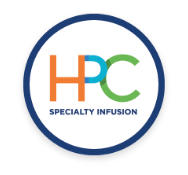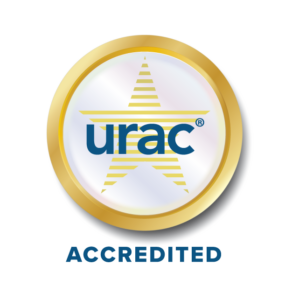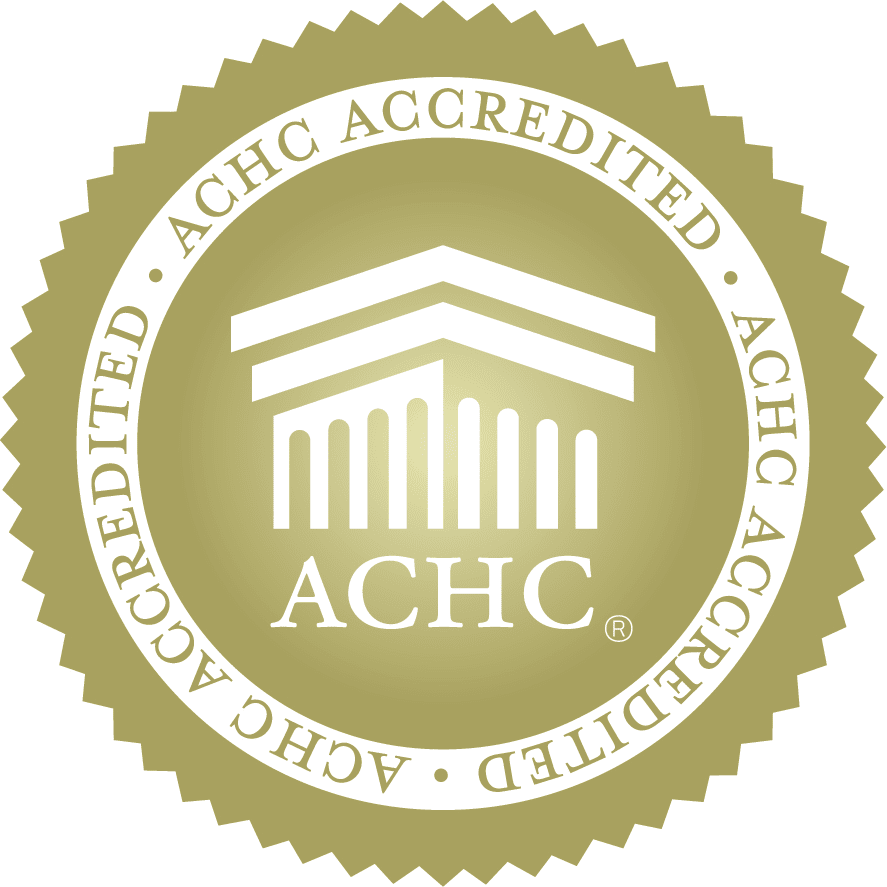Understanding more about your care
“HPC always has the most up to date information, so I can give my patients the best care possible!”
- Caregiver of an HPC patient
HPC always provides helpful information for patients to understand more about their care

Understanding Bleeding Disorders: Supporting Your Care
Bleeding disorders are a group of conditions that affect the blood’s ability to clot effectively. This can lead to excessive bleeding after injuries, surgery, or even spontaneously. Hemophilia is perhaps the most well-known bleeding disorder, but it’s important to understand there are others.
At the core of these conditions lie missing or malfunctioning proteins in the blood called clotting factors. These factors work to activate each other like falling dominoes. (This is often referred to as the “clotting cascade.”) Each factor plays a crucial role in forming a clot and stopping bleeding. When a factor is missing or deficient, the clotting process is disrupted, leading to prolonged bleeding episodes.
At HPC Specialty Infusion, we’re committed to providing wrap-around care to those living with bleeding disorders. Here’s a brief overview:
- Hemophilia: This inherited disorder is caused by a lack of specific clotting factors, most commonly factor VIII (hemophilia A) or factor IX (hemophilia B). The severity depends on the amount of missing factor, leading to easy bruising, prolonged bleeding from minor injuries, and potential joint damage from internal bleeding.
- Von Willebrand Disease (VWD): The most common inherited bleeding disorder, VWD affects a protein needed for platelets (cells that help form clots) to function properly. It can affect both males and females. Symptoms can vary but may include easy bruising, heavy menstrual bleeding, nosebleeds, and, in severe cases, spontaneous internal bleeding.
These are just two examples, and there are other, rarer, bleeding disorders. If you have a family history of bleeding problems or experience any concerning symptoms, talk to your doctor. Early diagnosis and proper management are crucial for living a full and active life with a bleeding disorder.
Our specialty pharmacy is here to partner with your healthcare team, providing access to necessary medications and ongoing support. We understand the unique needs of those living with bleeding disorders and are committed to helping you manage your condition effectively.
Living with a Bleeding Disorder: Challenges and Support
Living with a bleeding disorder presents unique challenges. The constant threat of bleeding can impact everything from daily activities to emotional well-being. Simple things like playing sports, brushing teeth, or even bumping into furniture can raise concerns about potential injury and bleeding. This can lead to anxiety and a sense of limitation, affecting participation in social activities and overall quality of life.
Fortunately, advancements in treatment and management have empowered people with bleeding disorders to live full and active lives. Here at HPC Specialty Infusion, we understand the specific needs of our patients with bleeding disorders. In fact, many on our staff are personally affected by one. Our customer advocates and clinical specialists work closely with your healthcare team to ensure you receive the right medications and have the wrap-around support you need.
We can provide:
- Customized Care: We offer comprehensive medication management, including self-infusion training, clotting factor replacement therapies, antifibrinolytics, infusion supplies, and supportive medications tailored to your specific condition and treatment plan.
- Discretion and Convenience: We prioritize discretion and understand the importance of access to your medications. We offer secure home delivery and discreet packaging for your comfort and privacy.
- Education and Resources: We are a valuable resource for information and support. Our team can answer your questions about your bleeding disorder, treatment options, and how to manage your condition effectively.
Living with a bleeding disorder doesn’t have to hold you back. With proper treatment and support, you can manage your condition and live a full, active life. Let HPC Specialty Infusion be your partner in navigating your bleeding disorder journey.
Bleeding Disorder Community Resources
Advocacy Organizations
Understanding Chronic Inflammatory Demyelinating Polyneuropathy (CIDP)
Chronic inflammatory demyelinating polyneuropathy (CIDP) is a rare autoimmune disease that affects the peripheral nerves, those outside the brain and spinal cord. In CIDP, the body’s immune system mistakenly attacks the myelin sheath, the protective layer surrounding nerve fibers. This damage disrupts nerve signals, leading to a progressive decline in muscle strength, sensation, and reflexes.
Symptoms of CIDP typically develop over weeks or months and can include:
- Weakness, especially in the legs and arms
- Numbness, tingling, or burning sensations in the hands and feet
- Fatigue
- Balance problems
- Difficulty walking
Managing CIDP
While there’s no cure for CIDP, treatment focuses on managing the inflammation and preventing further nerve damage. Treatments include:
- Corticosteroids: Medications like prednisone can help reduce inflammation, but long-term use can have side effects.
- Immune globulin (IG): Infusions of antibodies can help regulate the immune system and improve symptoms.
- Plasma exchange: This procedure removes harmful antibodies from the blood and can be helpful in severe cases.
- Immunosuppressant medications: These medications further suppress the immune system and may be used in combination with other therapies.
In addition to medications, physical therapy plays a crucial role in managing CIDP. Physical therapists can help maintain muscle strength, improve balance and coordination, and manage pain.
At HPC Specialty Infusion, we understand the importance of a comprehensive treatment plan for CIDP patients. Living with CIDP can be challenging, but with proper treatment and support, patients can experience significant improvement in their quality of life. As a provider of home IG therapy, we can work closely with your doctor to ensure you receive the most effective care.
Multifocal Motor Neuropathy: Understanding Progressive Muscle Weakness
Multifocal motor neuropathy (MMN), also known as multifocal motor neuropathy with conduction block (MMNCB), is a rare neurological disorder affecting the body’s motor nerves. These nerves are responsible for carrying signals from the brain and spinal cord to your muscles, allowing you to move. In MMN, the immune system mistakenly attacks these nerves at multiple locations, leading to progressive muscle weakness.
The typical symptom of MMN is gradual weakness, usually starting in the hands and lower arms. This can result in difficulty gripping objects, dropping things, or problems with fine motor skills like buttoning a shirt. As the disease progresses, weakness may spread to the legs, causing challenges with walking, climbing stairs, or keeping your balance. Notably, MMN usually doesn’t cause numbness, tingling, or pain, unlike some other nerve disorders.
Diagnosing and Managing MMN
Unfortunately, there’s no specific cure for MMN. However, early diagnosis and treatment can help manage the progression and improve quality of life. Diagnosis often involves a series of neurological exams, electromyography (EMG) to assess nerve function, and blood tests to look for specific antibodies associated with MMN.
Treatment options for MMN focus on slowing the progression and reducing muscle weakness. These include:
- Immune globulin (IG): These infusions provide concentrated antibodies to help control the immune system and potentially improve muscle strength.
- Immunosuppressive medications: These medications work to suppress the immune system’s attack on the nerves.
- Plasma exchange: In severe cases, this procedure removes harmful antibodies from the blood.
Physical therapy can also be a valuable tool in managing MMN. A physical therapist can design exercises to maintain muscle strength, improve coordination, and assist with daily activities.
While MMN can be a challenging condition, we will work closely with you and your doctor to develop a treatment plan that addresses your specific needs. As a provider of home IG therapy, HPC Specialty Infusion works closely with your doctor to ensure you receive the most effective care.
Understanding Myositis: When Muscles Come Under Attack
Myositis is a group of autoimmune diseases characterized by inflammation of the muscles. In a healthy immune system, the antibodies act to fight off invading germs. But in myositis, the immune system mistakenly attacks healthy muscle tissue, leading to progressive weakness and pain.
There are several different forms of myositis, each with different symptoms and presentations. Here’s a breakdown of the most common types:
- Polymyositis: This is the most common form, affecting multiple muscle groups, often symmetrically. Weakness typically starts in the hips, thighs, shoulders, and upper arms, making it difficult to climb stairs, lift objects, or stand for extended periods.
- Dermatomyositis: This form not only affects muscles but also causes a distinct skin rash. The rash often appears on the eyelids, face, knuckles, and upper body, with a reddish-purple hue. Dermatomyositis can also involve swelling around the eyes and difficulty swallowing.
- Inclusion Body Myositis (IBM): This is a degenerative form of myositis, primarily affecting people over 50. Weakness typically begins in the hands, forearms, and thighs, making it difficult to perform daily tasks like grasping objects or climbing stairs. IBM can also cause swallowing problems and muscle weakness in the face.
- Juvenile Myositis: This rare form affects children. Symptoms can include muscle weakness, fatigue, and a skin rash similar to dermatomyositis.
Managing Myositis: A Collaborative Effort
While there’s no cure for myositis, early diagnosis and treatment can significantly improve muscle strength and quality of life. Treatment typically involves a combination of approaches:
- Medications: Corticosteroids are often used to reduce inflammation, while immunosuppressant medications can further suppress the immune system’s attack on muscles. Another option is immune globulin (IG) therapy. Octagam® is a brand of IG that is FDA-approved to treat dermatomyositis. IG products have also shown promise in treating some patients with polymyositis.[1]
- Physical Therapy: Regular physical therapy exercises can help maintain muscle strength, improve flexibility, and manage pain.
- Occupational Therapy: An occupational therapist can help you adapt to limitations and find ways to perform daily activities more efficiently.
At HPC Specialty Infusion, we understand the challenges of living with myositis. As a provider of home IG therapy, We can work closely with your doctor to ensure you receive the most effective care.
[1] https://www.ncbi.nlm.nih.gov/pmc/articles/PMC7034746/ (2020)
Benefits of Home Infusion
Managing a chronic condition can be challenging. For patients who require immune globulin (IG) therapy, deciding where to receive treatment is an important consideration. Traditionally, IG has been administered in hospitals or outpatient infusion centers. However, home infusion offers a reliable option for many patients.
Studies have shown that home-based IG infusions can be just as safe and effective as those delivered in a clinical setting. Furthermore, home infusion offers several unique benefits:
- Increased Comfort and Convenience: Receive your IG treatment in the familiar surroundings of your own home, on a schedule that fits your life. This eliminates travel time and minimizes disruptions to your daily routine.
- Lower Cost: IG has traditionally been infused in a hospital outpatient setting. This comes with added facility fees, travel expenses, and secondary costs that can make an expensive treatment even more costly. Home infusion has been shown to reduce costs, not only for patients, but for insurance companies. That’s why many insurance companies encourage the use of IG at home.
- Reduced Risk of Infection: Hospitals and outpatient centers can be breeding grounds for germs. Home infusion reduces your exposure to potential pathogens, which is especially important for individuals with compromised immune systems.
- Improved Adherence to Treatment: The flexibility and comfort of home infusion can lead to better adherence to your IG therapy schedule. This can translate to improved health outcomes.
If you are considering home infusion for your IG therapy, we encourage you to discuss this option with your doctor. They can help you determine if home infusion is right for you and provide you with the information and resources you need to get started.
References:
- https://www.sciencedirect.com/science/article/abs/pii/S1544319123002340
- https://pubmed.ncbi.nlm.nih.gov/37399927.
- https://www.ajmc.com/view/managing-cost-of-care-and-healthcare-utilization-in-patients-using-immunoglobulin-agents
- https://www.ncbi.nlm.nih.gov/pmc/articles/.
- https://www1.magellanrx.com/documents/2019/03/medical-pharmacy-trend-report_2018.pdf/
- https://nhia.org/documents/NHIA_Position_Infused_Biologics.pdf
- https://www.neurology.org/doi/10.1212/WNL.84.14_supplement.P3.153
- https://onlinelibrary.wiley.com/doi/pdf/10.1002/brb3.923
- https://ajmc.s3.amazonaws.com/_media/_pdf/
- https://pubmed.ncbi.nlm.nih.gov/22361589/
Safety of Home Infusion
At HPC Specialty Infusion, we prioritize providing safe and effective treatment options for our patients. Immune globulin (IG) infusion therapy is a crucial treatment for many individuals, and we understand you may have questions about the safety of receiving this treatment at home.
Rest assured, studies have shown that home infusion of IG is just as safe as receiving it in a hospital or outpatient clinic. Here’s why:
- Trained Professionals: HPC’s home infusion nurses are specially trained to administer IG therapy safely and effectively in the comfort of your own home.
- Pre-screening and Monitoring: A thorough evaluation by your doctor ensures you are a good candidate for home infusion. Additionally, regular monitoring throughout your treatment helps identify any potential issues promptly.
- Emergency Preparedness: Home infusion providers equip you with the knowledge and resources to manage minor side effects and ensure you know how to reach help in case of emergencies.
While some mild side effects, like headache or chills, are possible with IG infusions, these are typically manageable. They can be minimized through proper administration techniques and pre-medications prescribed by your doctor.
If you have any concerns about the safety of home infusion, we encourage you to talk to your doctor or our team of specialists at HPC. We can address your specific questions and help you determine if home IG therapy is the right choice for you.
References:
- https://www.sciencedirect.com/science/article/abs/pii/S1544319123002340
- https://pubmed.ncbi.nlm.nih.gov/37399927.
- https://www.ajmc.com/view/managing-cost-of-care-and-healthcare-utilization-in-patients-using-immunoglobulin-agents
- https://www.ncbi.nlm.nih.gov/pmc/articles.
- https://www1.magellanrx.com/documents/2019/03/medical-pharmacy-trend-report_2018.pdf/
- https://nhia.org/documents/NHIA_Position_Infused_Biologics.pdf
- https://www.neurology.org/doi/10.1212/WNL.84.14_supplement.P3.153
- https://onlinelibrary.wiley.com/doi/pdf/10.1002/brb3.923
- https://ajmc.s3.amazonaws.com/_media/_pdf
- https://pubmed.ncbi.nlm.nih.gov/22361589/
About Immune Globulin Therapy
Immune globulin (IG), also known as immunoglobulin, is a protein solution derived from human blood plasma. Imagine it as a collection of your body’s defense forces – antibodies. These antibodies are produced by our immune system to fight off infections caused by viruses and bacteria.
When someone has a weakened immune system due to a condition or treatment, their body may not be able to produce enough antibodies to effectively combat infections. This is where immune globulin comes in. IG is obtained through a meticulous process where plasma is collected from thousands of healthy donors. This plasma is then rigorously tested and purified to collect the antibodies. The resulting IG preparation is a sterile solution containing a broad range of antibodies, ready to be used in a variety of medical treatments.
In medical practice, immune globulin serves as a targeted therapy. Depending on the specific condition, IG can be administered intravenously (IVIG) or subcutaneously (SCIG) to provide a boost of antibodies. This helps patients with immune deficiencies fight off infections more effectively.
Immune globulin is also used to treat certain autoimmune diseases and inflammatory conditions that are caused by an overactive immune system. Some of these include chronic inflammatory demyelinating polyneuropathy (CIDP), multifocal motor neuropathy (MMN), myasthenia gravis (MG), dermatomyositis, polymyositis, pemphigus, Kawasaki disease, immune thrombocytopenia (ITP), multiple sclerosis, and many others.
IVIG vs. SCIG
Immune globulin (IG) therapy plays a vital role in bolstering the immune system for people with conditions like primary immunodeficiency. It can also be used to treat autoimmune disorders by modulating, or suppressing, an overactive immune system.
IG medications come in two main forms: intravenous immune globulin (IVIG) and subcutaneous immune globulin (SCIG). Understanding their differences can empower you to participate in informed discussions with your healthcare provider.
Delivery Methods: IVIG is administered directly into a vein through an infusion, typically taking several hours to complete. SCIG, on the other hand, is delivered subcutaneously, meaning it’s injected under the skin through a smaller needle. This allows for self-administration at home, offering greater flexibility and independence.
Benefits and Downsides: IVIG infusions are typically less frequent, occurring every 3-4 weeks. However, the rapid rise in antibody levels can lead to side effects like headaches, fatigue, or muscle aches. SCIG requires more frequent infusions, often weekly or bi-weekly. While it offers a more gradual rise in antibody levels, leading to fewer systemic side effects, local reactions at the injection site are common, though typically mild and temporary.
The choice between IVIG and SCIG depends on your individual needs and preferences. IVIG might be preferred for those who require higher doses or prefer professional assistance with their infusion. SCIG, with its self-administration and potentially fewer systemic side effects, can offer greater convenience and improve quality of life for many patients.
We Can Help: At HPC Specialty Infusion, our specialty team is here to guide you through the intricacies of IG therapy. We can answer your questions about IVIG and SCIG, discuss potential side effects, and ensure you receive the most appropriate treatment option for your specific situation. We’re here to help you every step of the way.
Learn More about Immune Globulin Therapy
Home IG Therapy:
- Benefits of home IVIG therapy (IG Living)
IG Safety:
- Safety important for successful immunoglobulin replacement therapy (Immune Deficiency Foundation)
About Immunoglobulin:
- Intravenous Immunoglobulin (IVIG) treatment: What to know (Medical News Today)
- Immunoglobulin replacement therapy (Immune Deficiency Foundation)
- Intravenous immunoglobulin (IVIG) (American College of Rheumatology)
- Intravenous immunoglobulin (IVIG) (Myasthenia Gravis Foundation of America)
IG Community Resources
General
Autoimmune Disorders
- Autoimmune Association
- Cure JM Foundation
- Global Autoimmune Institute
- GPS | CIDP Foundation International
- International Pemphigus & Pemphigoid Foundation
- Myasthenia Gravis Foundation of America
- Myositis Support & Understanding
- Neuropathy Action Foundation
- Platelet Disorder Support Association
- The Myositis Association
Primary Immunodeficiencies
Financial Assistance Options at HPC Specialty Infusion
At HPC Specialty Infusion, we understand that the cost of specialty medications can be a significant burden. That’s why we’re dedicated to helping our patients access the financial assistance they need. Our team of dedicated advocates is here to guide you through the process of applying for various healthcare premium and copay assistance programs.
Non-Profit Organizations
Many non-profit organizations offer financial assistance programs to help patients afford their prescription medications. These programs often have eligibility requirements, such as income level or specific diagnoses.
Examples of non-profit organizations that offer financial assistance:
- Accessia Health
- The Assistance Fund
- Patient Advocate Foundation
- Good Days
- Healthwell Foundation
- PAN Foundation
Manufacturer Patient Assistance Programs (PAPs)
Most specialty pharmaceutical manufacturers offer patient assistance programs (PAPs) to help eligible patients afford their medications. These programs often have specific eligibility requirements, such as insurance coverage or diagnosis.
How HPC Specialty Infusion Can Help
Our team of advocates and insurance specialists is committed to helping patients navigate the complex world of financial assistance programs. We will:
- Assess Your Eligibility: We will review your specific situation to determine if you qualify for any financial assistance programs.
- Identify Potential Programs: Our advocates will identify the most appropriate programs based on your eligibility and the medications you need.
- Assist with Applications: We will provide guidance and support as you complete the application process for selected programs.
- Monitor Program Status: We will follow up on your applications to ensure a timely response. We’ll also keep track of any renewal or reapplication dates so your benefits don’t expire.
By choosing HPC Specialty Infusion, you can:
- Reduce your healthcare expenses: Our team will help you identify and apply for financial assistance programs that can lower your out-of-pocket costs.
- Maximize your insurance benefits: We’ll work with your insurance provider to ensure you’re getting the most out of your coverage.
- Simplify the process: Our advocates will handle the complex application process for you, saving you time and stress.
Please note: Eligibility requirements for financial assistance programs may vary. Our team will work with you to determine if you qualify and guide you through the application process.
If you’re struggling to afford your specialty medications, please don’t hesitate to contact HPC Specialty Infusion at (800) 757-9192. We’re here to help you find the financial assistance you need.
Prefer text? We’ve got you 😉
you’ll be able to chat with your dedicated nurse and other HPC team
members anytime, using the method that’s most comfortable for you.
therapies
through HPC
part of the
HPC family
in supporting
your community
Urgent patient concerns?
Speak to an HPC clinician any time of the day, 365 days per year: 1-800-757-9192



